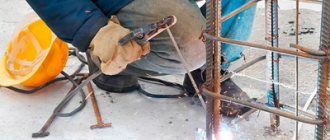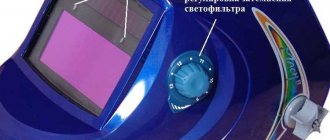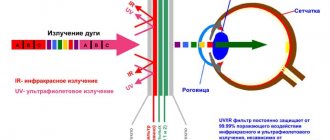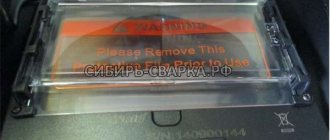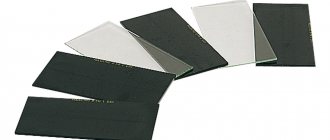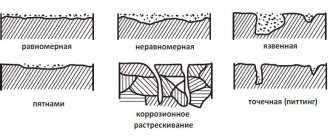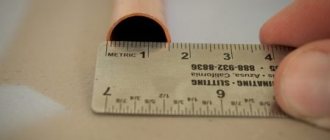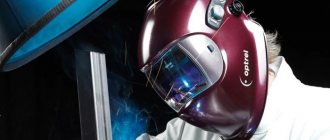Since childhood, our parents instilled in us that we should not watch how a welder works - otherwise you will go blind. They also scolded us for trying on other people’s glasses and moving our eyes to the tip of our nose. Modern mothers and fathers reprimand their children for their habit of surfing social networks in the dark and generally sitting at the computer for a long time. But which of these is really harmful to the eyes, and which is nothing more than a common myth? Read what pediatricians and ophthalmologists think about this.
- What happens when you look at welding?
- What if you look at the sun?
- How dangerous are monitors?
- What about gadgets in a dark room?
- Is it possible to bring your eyes to your nose?
- How dangerous is it to try on someone else's glasses?
- How to protect your eyes?
What happens when you look at welding?
Photo: MKvarda/pixabay.com
It’s not for nothing that welders work in masks - looking at welding is really harmful. But it’s impossible to go blind from this, and the most unpleasant thing that awaits you is photokeratitis, or a burn of the cornea. With this disease, a person begins to experience pain in the eyeballs, photophobia, or cannot open his eyes at all. This usually happens within six to twelve hours from the moment of receiving the burn. However, after a day or two, these symptoms disappear and vision is restored. So watching a pipe being welded is dangerous, but not fatal.
Degrees of burns
There are four degrees of welding burn:
- The first degree is characterized by redness of the mucous membrane, a burning sensation, itching, and the cornea of the eye may become cloudy. It is considered the mildest degree, which may not require medical intervention.
- In the second degree , acute pain is observed in the affected eyes, a painful reaction to bright light appears, and a film forms on the conjunctiva.
- The third degree is severe. With such damage, the eyelids may swell, the pain changes from acute to aching, visual acuity drops sharply, and the presence of sand or a foreign body is felt under the eyelids.
- The last, fourth degree , is considered extremely severe and as a result of such a burn, death of eye tissue (necrosis), pain in the eyes, inability to fully open the eyelids can occur, and the cornea loses its color and becomes whitish.
Each degree requires its own treatment methods.
What if you look at the sun?
Essentially, this is the same as looking at welding: if you don’t take your eyes off the sun for a long time, you can get photokeratitis, the symptoms of which are described above. However, it is not at all necessary to look specifically at the sun - you can get a burn by looking at any surface that reflects the sun's rays well, for example, water, sand or snow.
But that's not all : in addition to photokeratitis, you can damage the retina, so much so that you will see dark spots in front of your eyes for the rest of your life. Or get cataracts, which will make themselves felt in old age, and, sadly, all this one way or another leads to complete loss of vision. So it’s better to wear sunglasses when going out into the sun, and to watch the eclipse with the help of special equipment.
Eye burn from welding: how to treat?
This eye damage requires treatment, although many welders ignore this phenomenon in the early stages. This attitude towards the symptoms that appear can ultimately lead to loss of vision, so it is advisable to treat burns immediately at the first signs of their appearance .
How to treat a welding burn and what to do first?
Important! Often, a welding burn requires not only hospital treatment under the supervision of a specialist, but also first aid.
This set of measures should occur in stages :
- If signs of a burn appear, the victim can be given painkillers orally , and it is also worth using an anti-inflammatory drug to prevent severe swelling of the eyelids.
- Eyes should be rinsed with plenty of clean water (it is advisable to use boiled or bottled water).
- Next, you should examine the victim's eyes for the possible presence of electrode particles in them . If such foreign bodies are detected, they must be carefully removed with a cotton swab or a clean handkerchief folded into a triangle.
- A compress is applied to the eyelids of the affected eyes . It should be a clean cloth soaked in cold water. The compress should be kept for ten minutes - during this time the affected eyes will calm down.
- Any antiseptic ophthalmic ointment
At this point, providing first aid to the victim can be considered complete. All that remains is to take the person to a dark room and wait for the doctor to arrive . Upon examination, the specialist will determine the severity of the damage and, depending on this, prescribe treatment.
Basically, traditional medications are used for this, which help relieve inflammation and eliminate swelling (visin, visoptin, proculin) as well as painkillers tetracaine, lidocaine and alcaine.
The instillation of Visine and other medications lasts about three days; drops are instilled three times a day, one drop at a time.
Painkillers are dripped twice a day, the course of treatment is calculated based on how much pain the victim feels .
Discontinuation of the use of such drugs depends on the results of treatment, based on which the doctor makes recommendations for further use of painkillers or discontinuation of use of such drugs.
How dangerous are monitors?
Photo: Mateusz Dach/pexels.com
Not a single scientific study has proven the irreparable damage that computer monitors cause to the eyes. True, ophthalmologists still agree with the existence of computer vision syndrome, in which the image before the eyes blurs, the eyes get tired and pain occurs in the head and neck. It occurs because while working at the computer we blink less often, and the cornea becomes dry. However, you can get rid of this syndrome: you need to contact an ophthalmologist and try to choose the right lighting in the workplace.
Further anti-burn therapy
How to treat a skin burn by welding of the 1st-2nd degree yourself at home:
- use any antiseptics and treat the affected area with them;
- products: Olazol, Panthenol, Solcoseryl;
- for blisters, use antibiotic-based ointments: Levomekol, Tetracycline;
- Zinc ointment has a drying effect.
If there is an infection or the wound is swollen, you should consult a doctor.
Self-treatment of radiation injuries is allowed. For this, folk remedies, painkillers (a weak solution of Lidocaine, Analgin) are used; they are available without prescriptions.
First aid
If an eye burn occurs due to welding, the doctor knows what to do. But before visiting him, it is worth taking primary measures. The first requirement is to examine the cornea and make sure there are no foreign bodies. When welding, slag and scale particles often fly. If there is a foreign element, you should try to remove it with a sterile cotton pad.
Help for eye burns involves providing rest to the victim and relieving strain on the organs of vision. To do this, apply a cold compress for five minutes. To reduce pain, you can take Diclofenac or Tavegil. Tetracycline ointment will help reduce inflammation. Then you should consult a doctor.
https://www.youtube.com/watch?v=JMIYcBl4aug
Treatment methods
If welding comes into contact with the eyes, a medical examination is performed to determine the degree of burn and mechanical injury. Therapy is performed on an outpatient basis if surgery is not necessary. The victim is prescribed a treatment regimen that includes drugs of different effects.
- Drops with antibacterial, analgesic, anti-inflammatory and vasoconstrictor effects. Among the popular ones: Proculin, eye drops Vizin, Oftalmodek, Visoptin. The products relieve pain, relieve swelling, itching and other unpleasant symptoms.
- Antibiotics (Levofloxacin, Tobrex, Gentamicin ointment) prevent the development of concomitant diseases and eliminate the pain effect. Duration of use – at least 5 days (drip 4-5 times a day).
- Moisturizing and decongestant drops (Octilia, Visoptic) are used twice a day (during the first 2-3 days) to relieve redness of the eye and swelling of the eyelids.
- Eye drops with an analgesic effect (Novocaine, Tetracaine, Alcaine, 2% Lidocaine) relieve itching, stinging and burning, a feeling of sand in the eyes, pain. The drugs cannot be used for a long time; the risk of corneal clouding increases. Instillation is carried out no more than 2 times a day. Duration of use – 2 days.
If there is no improvement within 3-5 days of therapy, the patient is recommended to undergo additional research, which most often shows the need for surgical intervention.
Basic rules of labor protection in emergency situations
Welding safety precautions also include information about the actions of personnel in the event of an abnormal or emergency situation:
- stop work immediately;
- disconnect the equipment from the network, extinguish the flame, shut off flammable gases;
- find out what is happening or inform others;
- if possible, make attempts to eliminate negative phenomena.
If necessary, first aid should be provided to victims - by calling doctors or sending someone to call. In any case, you should notify your supervisor about everything that is happening.
Using eye drops
For the first three degrees of electrophthalmia, ophthalmic instillation solutions can be prescribed for treatment:
- vasoconstrictor and anti-inflammatory drugs Visoptin and Vizin, which are instilled three times a day, but not longer than three days;
- anti-inflammatory drugs indomethacin and nimesil - such drugs help relieve pain and reduce inflammation;
- antibiotic drops (tobramycin, gentamicin), which promote disinfection and enhance the regenerative properties of affected tissues (for a week, such drops are used six times a day, one drop in each eye);
- anesthetics (tetracaine, lidocaine), which quickly relieve pain and irritation.
Such drugs can only be prescribed by a specialist after examining the victim’s eyes and assessing the severity of the burns.
Popular questions
Why do my eyes hurt after welding?
The pain syndrome is caused by a burn, which is formed under the influence of powerful light radiation. Scale that gets into the eyes with sparks also provokes pain.
How long will your eyes hurt?
The recovery period lasts differently for each victim, it all depends on the sensitivity of the eyes. Sometimes the pain disappears after 3-5 days, in more complex cases it takes 2-3 weeks.
How to make light perception easier?
In order to facilitate the perception of light, the victim is recommended to wear darkened glasses for some time. It is better to close the curtains in your home; you should temporarily give up the TV and computer. For a quick recovery, you need to stay in bed for several days, and use Ketanov and Analgin to relieve pain. Nimesil and Diclofenac will help stop inflammation.
Complications and consequences of a burn
If the tissues are not severely affected, dangerous diseases do not develop. Unpleasant symptoms quickly disappear. In case of severe eye damage or refusal of treatment, the following complications arise:
- corneal clouding;
- severe visual impairment;
- astigmatism;
- corneal ulceration;
- chronic keratitis.
If scale gets into the eye, there is a high probability of developing post-traumatic complications, for example, chronic conjunctivitis. Severe electrical burns cause vision loss.
Degrees of damage and symptoms
To understand what to do with welding bunnies, you need to understand what degree of burn was received. When exposed to ultraviolet radiation, the cornea, mucous membrane, and retina may be damaged. Depending on the degree of damage, the optimal remedy for welding bunnies is selected or immediate hospitalization is required.
Electroophthalmia is divided into degrees:
- First . At this stage, only slight redness of the eyes, lacrimation and discomfort are observed. It may also be accompanied by clouding of the cornea.
- Second . Cloudiness of the cornea is clearly visible, and a film can be seen on the membrane, which separates over time. Another sign of the second stage of damage is the formation of erosions on the cornea.
- Third . The level of clouding of the cornea is so severe that it loses its transparency. In addition, there are signs of necrosis around the eyes. A film on the eye that does not come off or hardly comes off.
- Fourth . Characterized by the maximum degree of clouding of the cornea. It becomes completely opaque, and deep necrotic processes occur in the tissues.
Complete tissue restoration is possible only with the first two degrees of damage. Most often, it is enough to use drops or folk remedies for welding bunnies. To minimize the risk of complications, for any degree of damage to the tissues of the visual organs, it is recommended to consult a specialist.
In progress
If you do not take into account the degree of compliance of the weld with the required parameters, the main leitmotif of welding work is to protect yourself and others from exposure to radiation, high temperature, particularly harmful aerosol, flying sparks and electric shock:
- ventilation must be constantly on;
- contact with metal surfaces is not allowed - felt or rubber mats should be placed;
- It is important to keep the cables straight and not intersecting;
- when using other equipment and machines, it is important to ground them and turn off their power systems;
- electrodes and other consumables should be used in prepared form - dry and without obvious defects;
- if possible, work with an assistant;
- The welding power source may only be manipulated after it has been disconnected from the network.
When an arc occurs, it is important to wear all recommended PPE.
Useful article - Types of welding machines
Reason to urgently seek help
When a welder has picked up “bunnies”, he should turn to the first aid station for help. If a person cooked without a mask, it is necessary to examine the organs of vision for the presence of scale particles. If foreign bodies are detected, the mucous membranes are wiped with a clean cotton swab and washed with boiled water.
We recommend reading: How to weld hinges and awnings on gates yourself
The following signs are reasons to immediately visit an ophthalmologist:
- long-lasting pain in the eyes;
- red color of the sclera;
- decreased visual acuity;
- headaches, dizziness.
Upon completion of the process
Safety precautions for the welder at the end of the process come down to simple points:
- disconnecting electrical equipment, winding cables to a prescribed place (usually near the power source, in a locked cabinet);
- putting things in order, cleaning tools and putting items in their places;
- the cylinders are locked, their valves are covered with caps;
- consumables (electrodes, carbide, wire) and valuable (blanks and parts) materials are described in a general manner and locked.
If deviations or malfunctions are detected, you should immediately inform your supervisor.
Before starting welding
The initial stage determines safety precautions for arc welding in terms of preparation of conditions:
- checking the equipment planned for use - its serviceability and protection from water;
- checking the grounding and correct installation of all connections, as well as the integrity of the cable insulation;
- absence of dirt, oily fabrics, water on the floor and parts;
- Fire extinguishing equipment is available within walking distance;
- the working area is fenced (including with signal signs), there is only one entrance to it.
Organizational factors - obtaining technical specifications and conditions for creating a result.
Prohibited actions
Some activities can worsen the condition of a person who has caught welding “bunnies”. Doctors give recommendations on what to do if your eyes hurt from welding, and what actions you should refrain from. With electroophthalmia you cannot:
- Rub your eyes. This contributes to increased pain and secondary infections.
- Rinse eyes with tap water. The bacteria contained in it penetrate the tissues, contributing to the development of severe complications.
- Use dubious folk recipes. Such treatment begins only with the permission of a doctor.
- Use drops and other medications yourself. Not all medications help with burns; some make the damage worse.
How long do “bunnies” usually last and how long does treatment last?
Important! The duration of the consequences of a burn in the form of pain, light spots in front of the eyes and redness can last a different amount of time depending on the degree of damage and the “training” of the eyes.
Over the years, the retina of boilers becomes less sensitive, and where a beginner would receive a burn, an experienced master will not even feel any impact.
Typically, the peak development of unpleasant and painful sensations is reached on average 8-10 hours after receiving a burn . It is especially difficult to endure such sensations at night, when the symptoms intensify.
Even with proper and timely treatment, the effects of burns will be felt for another 7-10 days.
Folk remedies
Most welders use proven folk remedies to relieve the effects of minor burns. To do this, they cut raw potatoes and place the cut parts on their closed eyelids. There is no need to press down. The vegetable becomes hot, relieves pain and soothes the eyes. You can make a decoction of chamomile and linden, and when it cools, soak cotton swabs and place on your eyelids. It is a good antiseptic and anti-inflammatory agent.
Light from a welding arc hitting the cornea causes pain. But this is not felt immediately, but towards the end of the day. If symptoms of damage appear, you should take primary measures and consult a doctor. Prescribed eye drops for welding will help quickly restore the health of your vision.
Gas welding and cutting - safety precautions
Safety requirements are also available for oxygen gas metal processing methods. Thus, carrying out gas welding operations requires attention to the following points:
- the position and safety of gas cylinders is the key to the health of workers, therefore their storage and transportation require maximum attention;
- protective caps on the valves of the cylinders must be on at all times - unless the container is currently connected;
- Before connecting the burner and starting to supply the gas mixture, it is important to check the condition of the unit - technical condition and the absence of oil on the burner and fittings;
- connection of gas communications is carried out in a certain order - as is the supply of flammable gases;
- when performing gas welding work, it is better to hang the supply hoses rather than lay them on the floor;
- It is better to keep the gas pressure constant;
- When a backfire occurs (characteristic popping noises are heard), it is important to shut off the supply of flammable gases as quickly as possible, and first it will be acetylene, and only then oxygen.
When working, it is important to keep the burner flame under control and not leave a lit burner lying down or unattended.
Useful article - what is Tig welding
Safety precautions when performing welding work at height
Work above ground level above 1.5 meters is called work at height. In addition to standard PPE, the welder must also wear a helmet and safety belt.
All tools are secured against falling; it is recommended to take the minimum necessary with you. It is recommended to use compact welding equipment, and cables that are as flexible as possible and of sufficient length.
It is important to protect the area under the operations being performed from people accidentally passing under it. This will protect everyone from accidental drops of workpieces, tools, scale and sparks.
Useful article - How to check NAKS in the registry by last name
